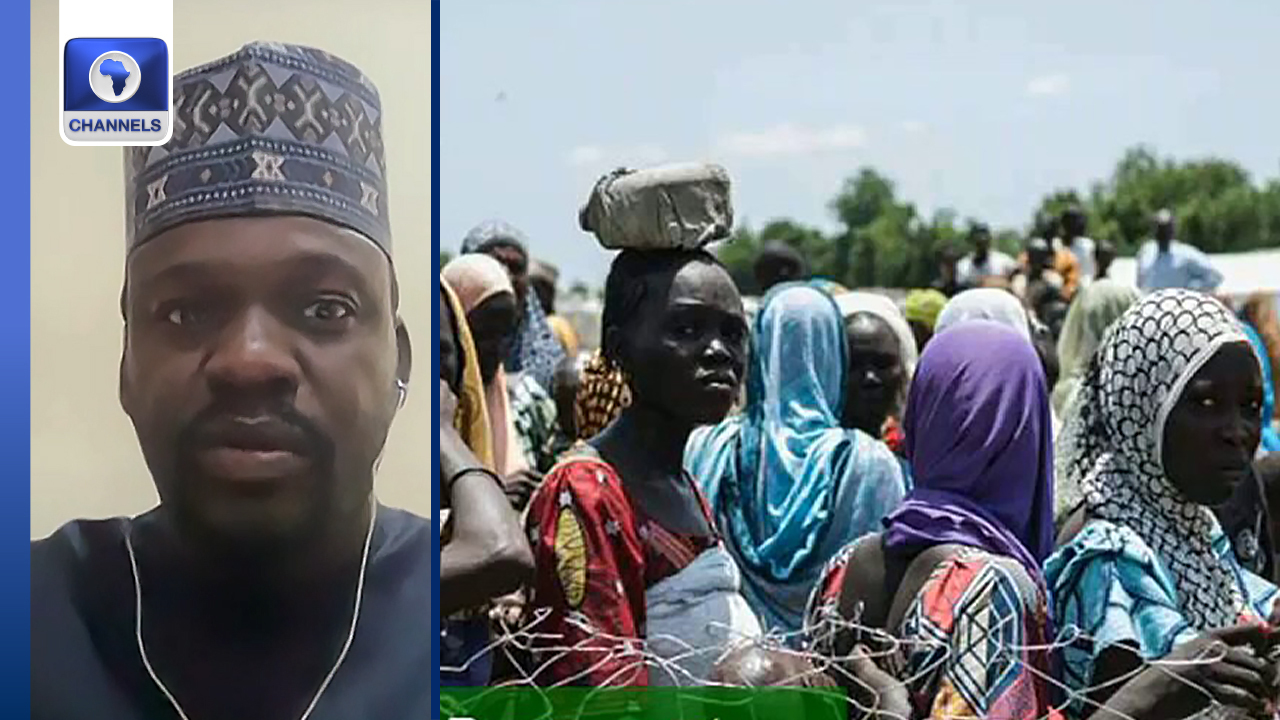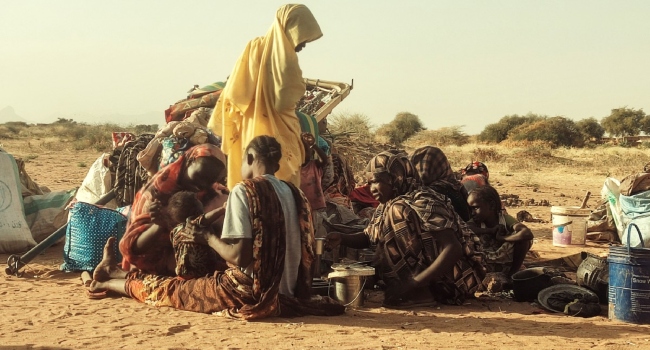Despite security improvements, internally displaced persons (IDPs) in Yobe State are still struggling with limited access to means of survival, the Executive Secretary of the Yobe State Emergency Management Agency (SEMA), Mohammed Goje, has said.
Speaking on Channels Television’s The Morning Brief on Wednesday, Goje acknowledged the humanitarian concerns but maintained that the state’s approach had transitioned from temporary camps to more “durable and realistic” solutions.
“In Yobe State, the context is entirely different. We have already moved from IDPs in camps to a more realistic and durable solution,” he said.
READ ALSO: EU Donates €1.5m To Yelewata Victims, Other IDPs In Benue
According to him, most IDPs in the state had been resettled, except for those from Mandunari town — a community still undergoing reconstruction.
He explained that the government was rebuilding critical infrastructure in Mandunari, including housing, healthcare, education, water, and security facilities, to enable the safe and sustainable return of its residents.
Goje admitted that although security had improved across the state, significant challenges remained — particularly due to funding constraints and declining international support.
“Even though there have been tremendous improvements, because of the funding constraints — funding we do not partake — and other development challenges, the return of IDPs comes with a larger burden to the government.
“And when I say the government, I mean in terms of resettlement, in terms of giving them their livelihood, and in terms of returning them to their ancestral threats and businesses. These are a huge challenge to the government,” he stated.
He noted that Yobe’s displacement issues were especially complex because many of the affected people come from rural and nomadic “horse communities,” which required tailored reintegration plans and livelihood support.
To address these challenges, Goje said the government was using a three-pathway strategy for IDP resettlement: return, integration, or relocation — each backed by a specific support package.
These include housing for returnees, assistance for host communities, and development projects to strengthen basic services.
He also disclosed that a comprehensive state-level IDP policy has been developed, focusing on closing sectoral gaps in health, water, environment, and education.
“We have revealed the gap accompanied by the challenge — especially with the withdrawal of US aid — and we have defined our gaps based on health, water, environment, and education, all in order to see how the government can fix and close the gap,” he added.





